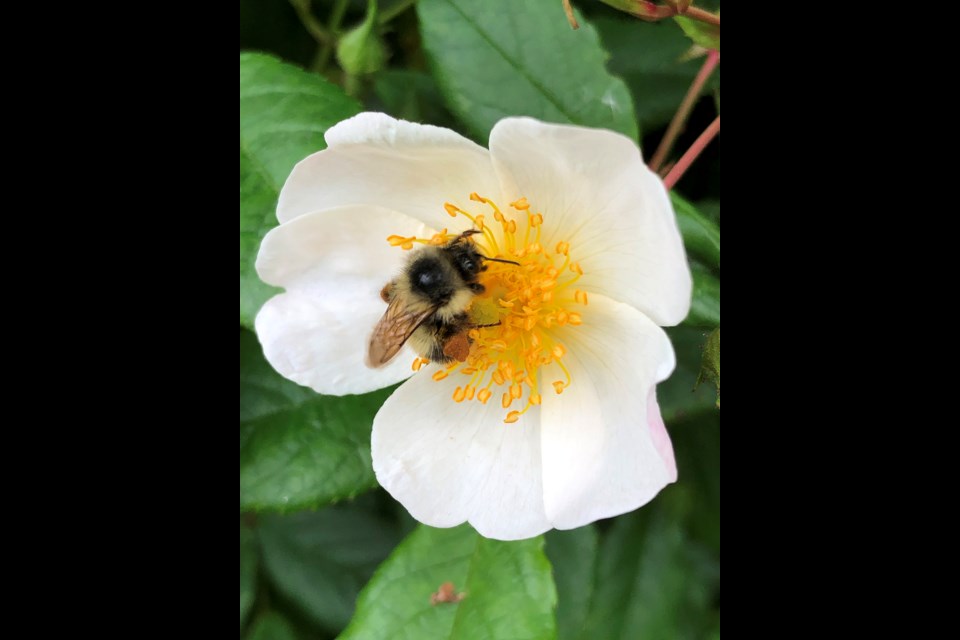Roses are now leafing out, with some flower buds already showing.
I know it’s early in the season, but I’m hearing of aphid problems already on roses and would highly recommend simply washing them off with a gentle flow of water.
In terms of sprays, if you wish to stay organic, use Safer's ‘Trounce’ every 10 days as a foliar mist.
To keep mildew and black spot in check, pick off all the infected foliage and alternate an application of old-fashioned garden sulphur with an application of baking soda at the rate of eight grams per one litre of water every 10 days. It works!
There are also organic fungicides, like Safer’s ‘Defender,' available in ‘ready-to-use’ or ‘concentrate’ formulations.
Despite roses being slightly acid loving, they love well-rotted manures.
Fibrous manures, such as mushroom compost, are dandy and should be applied at least four to six inches deep around your roses.
If you covered the bud unions of your roses in winter with bark, sawdust or soil, remove it now and work it into the soil along with the manures.
Roses are heavy feeders. Many organic and traditional rose foods are on the market, but be sure they are rated low nitrogen, high phosphorus and high potash with micronutrients. Roses should be fertilized every two months unless you use a slow-release fertilizer which can last from four to six months.
There are some interesting roses that are very disease resistant.
Bailey’s Nursery has introduced a series called ‘Easy Elegance' that have great hardiness, attractive flower forms, compact size, recurrent blooming habits and yes, great disease resistance.
Kordes Roses are among the world’s best. As a rule of thumb, all their roses are very disease resistant, and many have a fabulous perfume. I’m particularly fond of the vibrant pink ‘Beverly’ but you should be able to find a wide selection available now in many garden stores.
Caring for our roses and keeping them clean and healthy does require a little effort. I’ve seen quite a shift in rose demand. Today, folks are moving away from the traditional modern varieties to the more versatile shrub roses, and toward ground cover roses and hardy, easy-care, disease-free, continuous-blooming varieties.
I’ve never been a fan of ‘Knock Out’ roses in the past, but in the continuous wet weather last April and May, they performed the very best and they are the Number 1 selling rose in North America. Now ‘Double Knock Out’ are also available if you’re looking for a much fuller rose.
If it’s pure perfume you want, the David Austin English roses are among the best in the world. They are a wee bit pricey, but the fragrance alone makes them so wonderful in our gardens and in our homes as cut flowers, that they are worth the investment.
Now is a perfect time to plant roses, and we have so many choices today it’s easy to have a great carefree rose garden.





